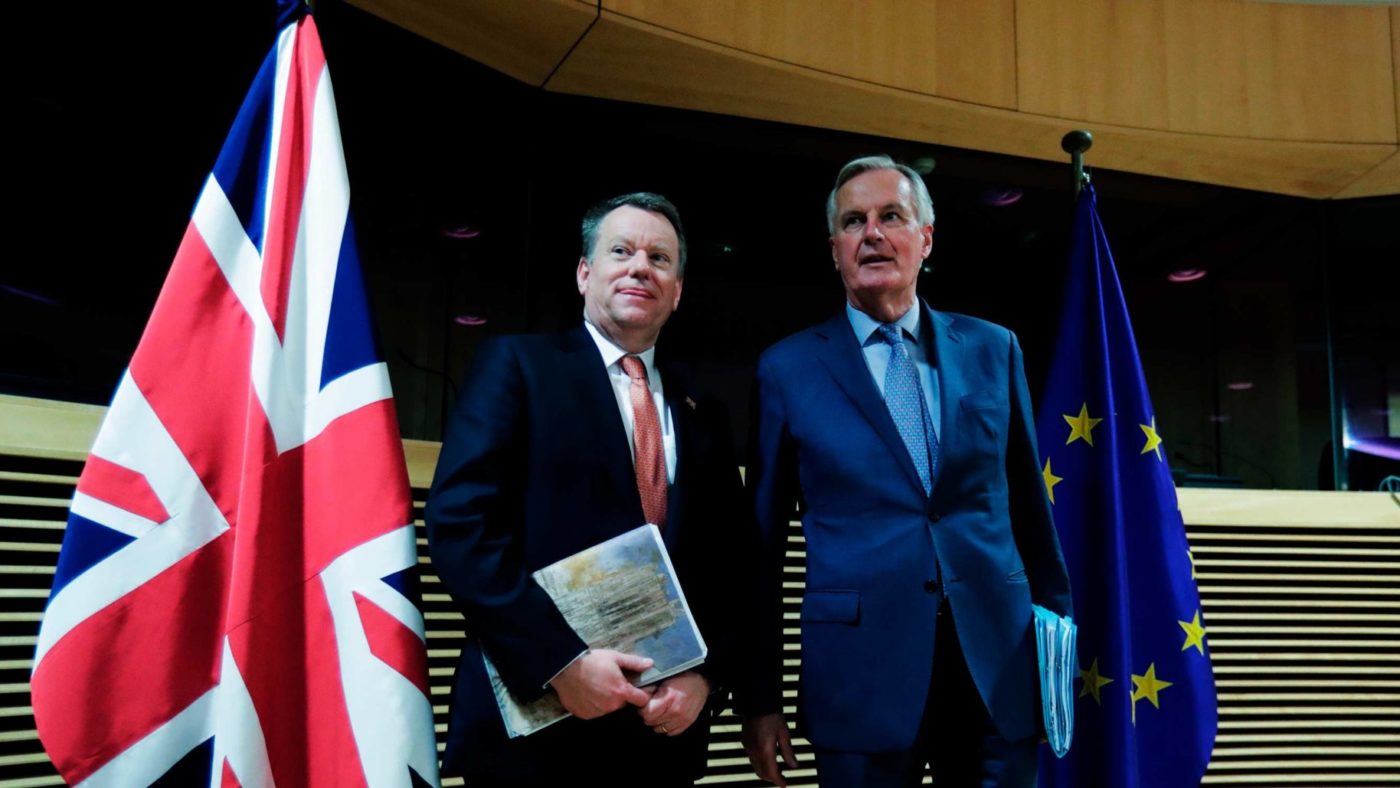The mood music from negotiators Michel Barnier and David Frost does little to suggest that the EU and UK will agree a trade deal by the end of the year. And so we face yet another Brexit-related deadline, this time the June 30 date by which any extension would have to be agreed. The government has now formally ruled out an extension, which means the possibility of the UK leaving transition without a trade deal is very real.
The conventional wisdom is that leaving without a trade deal will hit exports, economic growth and jobs and, coming on top of the economic hit due to coronavirus, many businesses will not be able to cope. Hence the pressure building on the Government to agree an extension.
But there is another perspective. One of the biggest problems caused by the anguished Brexit process has been the uncertainty faced by businesses and potential investors. A transition extension would not solve any of the underlying issues, rather it would put them off for a year till we face another deadline. In other words, we would simply have an extension to business uncertainty, the last thing we need in the current situation.
Further, many commentators continue to ignore that there are both short and long run potential economic benefits from leaving the single market and customs union. The immediate fiscal benefit from no longer have to contribute to the EU budget would be a welcome boost to a Government desperate to fulfil its pledges on improving infrastructure in the Midlands and North, but with very limited cash to do so. Just as important is the other side of the coin: transition extension would leave the UK vulnerable to getting caught up in the next EU budget and emergency measures to deal with coronavirus-induced debt crises.
The Covid-19 context matters too, but we must remember that an extension would make it harder for the UK to cope with the economic fallout from the virus-induced lockdown. The EU has relaxed its rules on state aid to allow member states to provide more help to their own industries, but we have no idea how long this relaxation will last and, in any extension, the UK would have no influence on how the rules are developed and applied. The last thing that workers worried about their jobs need at this time is an external constraint on how we use economic levers to rescue sectors of the economy such as transports and hospitality which have been ravaged by the virus.
The moment transition finishes, the UK is able to implement measures to make trade easier with non-EU countries. These include unilateral moves such as reducing tariffs on key imports leading to lower consumer prices. But also more formal trade deals with key partners such the US, Canada and Japan. The enthusiasm for such deals is likely to diminish quickly if they are delayed by transition extension.
Of course, it would be preferable also to have a deal to allow continued low-friction trade with the EU. But the chances of such a deal happening are much higher if the EU knows that there is a firm deadline to negotiations. Given the huge trade surplus that the EU operates with the UK, it is clearly in their interests to continue tariff-free trade. However, if the EU believes the UK will never leave transition without a trade deal, then paradoxically, it has little incentive to offer one. Much better from their point of view to keep the UK under their regulatory control for as long as possible.
Now it may be the case that, perhaps for political reasons, the EU has no real intention of agreeing a mutually beneficial deal unless the UK agrees to subject itself to EU rules. If so, then a transition extension is pointless – it just delays the point at which the UK has to deal with some more friction in its EU trade.
All of these factors are highly relevant to voters in the so-called “Red Wall” ex-Labour seats in the Midlands and North. They elected Boris largely to “get Brexit done” and new polling done for the Centre for Brexit Policy suggests they voters in these seats haven’t changed their mind, with 51% of Red Wall voters saying there should be no extension. Critically, the CBP polling shows that as many as 35% of the voters who switched from Labour to the Conservatives in the 2019 election would be less likely to vote Conservative in the event of an extension, a point which will not have escaped the notice of Boris Johnson and Dominic Cummings.
As a result, it looks like we will be heading into the autumn with the pressure on both sides to complete a deal to an absolute and final deadline of the 31st December. If the UK side holds its nerve, we could finally find a way out of the Brexit Groundhog Day.
Click here to subscribe to our daily briefing – the best pieces from CapX and across the web.
CapX depends on the generosity of its readers. If you value what we do, please consider making a donation.


